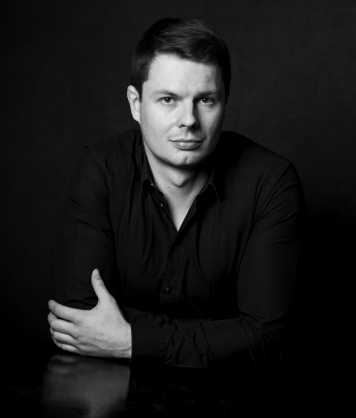Heinrich Büssing Prize 2023 goes to Alexander Henkes
The Braunschweigische Hochschulbund and its foundation honor Dr. Henkes with the Heinrich Büssing Prize 2023 and a festive award ceremony.

If airplane passengers knew how thin the walls around them are, most of them would probably break out in a cold sweat: On an Airbus A310, for example, it is often only 2 millimeters in the fuselage area. As unimaginable as this may seem, it is safe and has been proven a million times over.
Before lightweight components are used in an aircraft or in other areas, intensive research, development and testing work is required. Computer simulations are used to supplement complex experiments in a resource-saving manner. "However, we encounter a problem with modern materials," explains Dr. Alexander Henkes. If the researchers change the composition of particle- or fiber-reinforced composites on a microscopic level, for example, the behavior of the entire component changes - depending on its planned shape and material fluctuations. It is difficult to test such components using conventional computer simulations. Dr. Henkes: "The calculations can be very computationally intensive - weeks to months. So new ways are needed to be able to carry out these high-precision calculations anyway; especially for smaller companies that can't afford expensive data centers. This is where my work comes in."
In his external pagedissertation, the engineer developed methods based on artificial intelligence that greatly accelerate the highly intensive calculations. This enabled complex simulations to be carried out up to 1800 times faster. Dr. Henkes avoids a typical problem of artificial intelligence (AI): "In order to avoid the data hunger of these AI-based methods, I again use AI-based methods that, for example, greatly reduce the time-consuming acquisition of data using CT scanners etc. Physical laws are also integrated into the model." In this way, planned lightweight components - for an aircraft or car, for example - can be tested much faster and with fewer resources in future.
A jury judged this scientific achievement to be outstanding and has now awarded Dr. Henkes the external page2023 Heinrich Büssing Prize. The prize, awarded by the Braunschweigischer Hochschulbund and its foundation, includes prize money of 10,000 euros.
Dr. Henkes is currently working at the Computational Mechanics Group led by Prof. Laura De Lorenzis: "My current research ties in with the most challenging but most urgent points of my dissertation. Unfortunately, AI-based methods often require a lot of energy. Training large models like ChatGPT can cost several million dollars equivalent in electricity. In my dissertation, I have already developed energetic lightweights. But there's more to it." Dr. Henkes will therefore continue to contribute to establishing artificial intelligence as a resource-saving tool in the development of high-performance components - such as an aircraft wall.
Congratulations!
